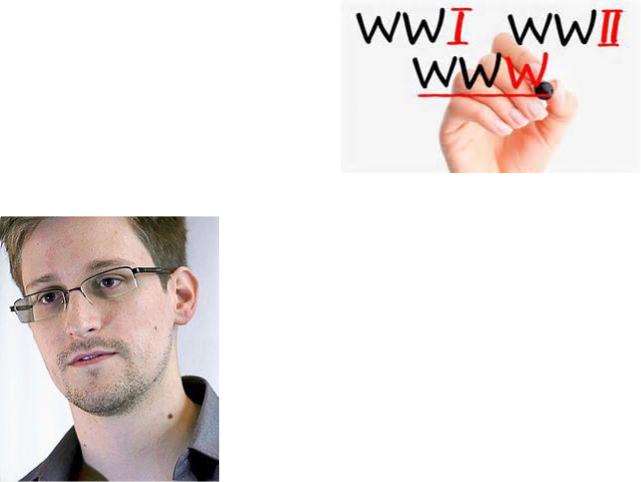
Simple English for Security Specialists. Information Security of Automated Systems-4
.pdf
3Write what Sarah said, making the necessary changes.
1“I’m living in New York.”
2“My mother isn’t very well.”
3“Jane and Paul are going to visit Italy next month.”
4“My brother had an accident.”
5“I haven’t seen Diana last night.”
6“Jack and Jill were waiting for the bus.”
7“I don’t drink coffee anymore.”
8“Tom can speak Japanese.”
9“I will go to Anna’s birthday party.”
10“My purse was stolen this morning.”
11“Kate took my keys.”
12“My husband has just finished reading this interesting book.”
13“Daniel didn’t buy the tickets for the theatre yesterday.”
4 Choose the correct word.
1She said / told us to stand up.
2Mr Jones said / told the manager he was leaving.
3Everybody said / told the concert had been terrible.
4I didn’t say / tell Meg that I was coming today.
5The Prime Minister said / told that things would get better soon.
6Alice said / told she was sick.
7Nancy didn’t say / tell us anything.
8You said / told me you were working tonight.
5 Transform into direct speech.
1He said that she would leave at six.
2He said that Peter often went fishing.
3Mary asked if she could come back later.
4I said that I had just seen Mark.
5Alan told me that Angela was watching TV.
6They said that the cat had been sleeping on the sofa.
7I said that we were late.
8She asked what the boys were doing.
6Put the questions into reported speech:
1“How old are you?”
2“Are you married?”
3“Do you live nearby?”
4“Where have you worked before?”
5“Can you speak German or French?”
6“Do you have a driving license?”
7“How much money do you want?”
7 Rewrite the following commands.
221

1“Sit down, please.” - The teacher told the students
______.
2“Give me some more money, please.” “ Bob begged his parents ______ .
3“Don’t play with my toys.” - Michael said to his little brother ______.
4“Don’t forget to say your prayers.” - Their brother advised them ______.
5“Look at me and listen carefully to my words.” - The Captain ordered his soldiers ______.
6“Don’t move and keep smiling.” - The photographer went on saying to everybody
______.
7“I forgot my pen, please lend me yours.” - Peter told Jane ______.
8“Don’t go away, wait for me.” - He told his friend ______.
9“Give me another sandwich, please, but this time with a little more cheese.” - She asked her husband ______.
10“Just call me if there is anything you need.” - The nurse said to the patient
______.
8 Report the following phrases using the verbs in the box.
promise |
agree |
deny |
apologize congratulate |
advise |
||
invite |
offer |
thank |
admit |
insist |
warn |
suggest |
|
|
remind |
|
refuse |
|
|
1Wendy said to Mrs. Johnson, “Let me feed your cats”
2Greg said to his brother, “Why don’t we run a race?”
3Mr. Nil said to his secretary, “If I were you, I wouldn’t wear such striking colours”
4David said to Andy, “Don’t talk to my sister any more, or you’ll regret it”
5Val said to Laura, “Hey, come with us to see the sunset”
6Paul said to Mrs. Black, “I will never say a bad word about your husband”
7Terry said to Mr. Fandel, “I’m sorry, I damaged your flowerbeds”
8Liam said to the policeman, “I didn’t mug this old bag”
9Sam said to Mrs. Clarens, “Well, it’s me who put soap into your vegetable stew”
10Henry said to Nick, “We definitely must tell the truth”
11George said to Deborah, “ I won’t skate together with you”
12John said to Hugh, “It’s time to return the book to the library”
13The film director said to the audience, “Thank you very much for such a wonderful reaction”
14Finn said to Pete, “They say you got a university degree. Congratulations”
15Susan said to her mother, “All right, I’ll be back home before eleven”
222
MORE WORDS AND PHRASES TO KNOW
introduction – введение conclusion – заключение
223
6b CYBER WARFARE
VOCABULARY
1 Read and learn the words and phrases.
cyber warfare |
кибервойна |
involve |
содержать |
alter classified data |
изменять засекреченные данные |
criminal |
преступный |
high-tech |
высокотехнологичный |
military |
военный |
cyber spy network |
сеть кибершпионов |
belong to |
принадлежать |
scope |
масштаб |
data breach |
утечка данных |
incident |
случай |
cause a tension |
вызывать напряжение |
reveal global surveillance |
обнародовать массовую слежку |
top security threat |
наивысшая угроза безопасности |
recognize |
признавать |
cyberspace |
киберпространство |
domain in |
поле деятельности в |
critical to |
решающий для |
vulnerable |
уязвимый |
possible |
возможный |
2 Find the synonyms to the following words.
1 |
change |
|
j |
h |
x |
a |
l |
t |
e |
r |
x |
j |
h |
k |
2 |
offence |
|
m |
k |
q |
j |
w |
b |
r |
e |
a |
c |
h |
z |
3 |
secret, confidential |
|
j |
c |
l |
a |
s |
s |
i |
f |
i |
e |
d |
h |
4 |
vital, crucial, important |
|
x |
k |
h |
m |
c |
r |
i |
t |
i |
c |
a |
l |
5 |
the Internet |
|
w |
c |
y |
b |
e |
r |
s |
p |
a |
c |
e |
h |
6 |
field, sphere |
|
j |
x |
k |
m |
m |
d |
o |
m |
a |
i |
n |
w |
7 |
event, chance |
|
m |
q |
j |
w |
i |
n |
c |
i |
d |
e |
n |
t |
8 |
include, contain |
|
x |
q |
h |
i |
n |
v |
o |
l |
v |
e |
j |
q |
9 |
probable |
|
||||||||||||
|
q |
p |
o |
s |
s |
i |
b |
l |
e |
k |
k |
m |
||
10 |
realize, become aware |
|
||||||||||||
|
r |
e |
c |
o |
g |
n |
i |
z |
e |
q |
q |
m |
||
11 |
range, size, scale |
|
||||||||||||
|
w |
s |
c |
o |
p |
e |
k |
h |
q |
j |
w |
k |
||
12 |
defenseless |
|
||||||||||||
|
h |
v |
u |
l |
n |
e |
r |
a |
b |
l |
e |
x |
||
|
|
|
||||||||||||
|
|
224 |
|
|
|
|
|
|
|
|
|
|
|
|
3 Match the terms and their definitions.
belong to |
classified |
critical |
|
cyber |
cyberspace |
cyberwarfare |
global |
|
high-tech |
incident |
military |
|
spy |
surveillance |
ausing high technology
ba bad or unusual event
crelating to the whole world
dofficially kept secret by a government
erelating to the army, navy, or air force
fto be a member of a group or organization
gvery important for the way things will happen in the future
hrelating to electronic communications, especially the Internet
ithe use of computers to disrupt the activities of an enemy country
jsomeone who secretly tries to discover information about a person or country
kthe Internet, as an imaginary area where you can communicate with people and find information
lwhen someone is watched carefully, especially by the police or army, because they expected to do something wrong
4 Complete the sentences. Use the words from the right column.
|
ADJECTIVES |
|
1 |
She was a __________ sixteen-year-old. |
Criminal |
2 |
He has a __________ record. |
possible |
3 |
I’ll send the paper today, if __________. |
vulnerable |
|
NOUNS |
|
4 |
Do we know the full __________ of the problem yet? |
domain |
5 |
The police have kept the man under strict __________. |
scope |
6 |
This information is in the public __________. |
surveillance |
7 |
The mind cannot be always in a state of intellectual |
tension |
|
__________. |
|
|
VERBS |
|
8 |
They __________ to the same chess club. |
has altered |
9 |
The city __________ very much since 2010. |
belong |
10 |
We __________ that the situation was hopeless. |
caused |
11 |
She __________ the secret to us. |
recognized |
12 |
The loss of freedom and the growth of despotism |
revealed |
|
__________ the ruin of the empire. |
|
READING
225

5 Read and translate the information about cyber warfare. Cyber warfare
Cyber warfare (or simply cyber war) is Internet-based conflict. It involves politically motivated attacks on information and information systems. Cyber warfare attacks can disable official websites and networks, disrupt or disable essential services, steal or alter classified data, etc.
Cyber warfare involves nation-states as well as such organizations as terrorist groups, companies, political or ideological extremist groups, hackers and transnational criminal organizations.
There are many examples of cyber warfare. Thus, in 2007, an unknown foreign group hacked into high-tech and military agencies in the United States and downloaded terabytes of information.
In 2009, the cyber spy network “GhostNet” accessed confidential information. It belonged to both governmental and private organizations in over 100 countries around the world.
In 2015, hackers stole the most sensitive information of 21 million people in the United States. The hack occurred at the Office of Personnel Management (OPM). They believe that the scope of the data breach is the biggest in US history.
Cyber warfare consists of many different threats. They are cyberattacks and cyber espionage. Some espionage incidents can cause serious tensions between nations. For example, in 2013 Edward Snowden revealed global surveillance by the USA. In 2014 Russia let him stay in the country for three years. This has increased tensions between Russia and the United States.
People now believe that cyberattacks are one of the top security threats. In the US, the Pentagon formally recognizes cyberspace as a new domain in warfare as critical to military operations as land, sea, air, and space.
The most effective protection against cyberwarfare attacks is securing information and networks. If you want to protect your data, it is essential to apply security updates to all systems because attacks on any vulnerable system are possible.
226

6 Find the paragraphs in the text that tell about these things.
ACyberattacks
BCyber espionage
CHigh-tech agencies
DCyber spy network
ECyber warfare organizations
FThe scope of the data breach
GProtection against cyber warfare
HPossibilities of cyber warfare attacks
7 Answer the questions.
1What is cyber warfare?
2What can cyber warfare attacks do?
3What organizations does cyber warfare involve?
4What do you know about cyber warfare of the 2007 year?
5What happened in 2009?
6What did hackers do in 2015?
7What does cyber warfare consist of?
8Can cyber espionage cause a tension between countries?
9What is Edward Snowden famous for?
10What does the Pentagon think about cyberspace?
11What is the most effective protection against cyber warfare attacks?
12What should people do to protect their data?
8 Translate the following words. Use the information about cyber warfare.
1 |
состоять |
c _ _ _ _ _ _ |
13 |
секретный |
c _ _ _ _ _ _ _ _ _ _ _ |
2 |
другой |
d _ _ _ _ _ _ _ _ |
14 |
необходимый |
e _ _ _ _ _ _ _ _ |
3 |
иностранный |
f _ _ _ _ _ _ |
15 |
увеличивать |
i _ _ _ _ _ _ _ |
4 |
правительство |
g _ _ _ _ _ _ _ _ _ |
16 |
нарушение |
b _ _ _ _ _ |
5 |
такой |
s _ _ _ |
17 |
обновлять |
u _ _ _ _ _ |
6 |
услуга |
s _ _ _ _ _ _ |
18 |
происходить |
o _ _ _ _ |
7 |
доступ |
a _ _ _ _ _ |
19 |
применять |
a _ _ _ _ |
8 |
угроза |
t _ _ _ _ _ |
20 |
красть |
s _ _ _ _ |
9 |
защита |
p _ _ _ _ _ _ _ _ _ |
21 |
отключать |
d _ _ _ _ _ _ |
10 |
террорист |
t _ _ _ _ _ _ _ _ |
22 |
безопасный |
s _ _ _ _ _ |
11 |
атака |
a _ _ _ _ _ |
23 |
загружать |
d _ _ _ _ _ _ _ |
12 |
шпионаж |
e _ _ _ _ _ _ _ _ |
24 |
нарушать |
d _ _ _ _ _ _ |
|
|
|
227 |
|
|

GRAMMAR
Relative clauses
We often join sentences with who or which (‘relative pronouns’). We use who for people and which for things.
I have a friend. He can speak three languages. →
I have a friend who can speak three languages.
There’s a problem. It worries me. → There’s a problem which worries me.
We often use that instead of which, and instead of who in an informal style, but who is more usual.
There’s a problem that worries me.
I’ve got a friend that can speak three languages.
9 Choose from the boxes and write sentences.
0 |
teacher |
a |
teaches in a school or college |
1 |
engineer |
b |
tricks a phone system, e.g. using a computer |
2 |
robotics engineer |
c |
produces computer programmes |
3 |
programmer |
d |
hacks into other people’s computer systems |
4 |
security specialist |
e |
designs websites, especially for businesses/organizations |
5 |
hacker |
f |
looks after a computer system which has many users |
6 |
cracker |
g |
designs or builds machines or electrical equipment |
7 |
phreak |
h |
identifies and solves potential and actual security |
8 |
system |
|
problems |
|
administrator |
i |
designs software to control robotic systems |
9 |
analyst |
j |
modifies software to disable copy protection features |
10 web designer |
k |
studies or examines something in detail |
|
Example: A teacher is someone / a person who teaches in a school or college.
We can also use who(m), which or that as objects*. Who is very informal as an object; whom is more formal.
Where’s that man? I must help him with the report. → Where’s that man who(m) I must help with the report?
These are problems. You don’t have them. → These are problems which/that you don’t have.
We normally use that, not which, after all, everything, nothing.
It’s all that I can see.
228

10 Put in who, which or that.
Example: A thief is a person who steals things.
1What’s the name of the river _____ flows through the city?
2What’s the name of the man _____ works with your father?
3There’s nothing _____ you can do about it.
4Chinese is the language _____ people speak in China.
5The people _____ live in Great Britain are the British.
6You can have everything _____ you want.
7Is this the train _____ goes to St Petersburg?
8The other people _____ live in the house are really friendly.
9These are principles _____ we all believe in.
10She’s one of those people _____ love to be the centre of attention.
11Write a word _____ is similar in meaning to the underlined one.
12A professor is a teacher _____ has the highest rank in a department of a university.
13Do you know anybody _____ can repair a computer?
14There’s a sentence _____ I don’t understand.
15Crackers remove or disable features _____ they think undesirable.
11 Correct the mistakes where necessary.
Example: A student is someone which is learning in a college or university. who The bag that he is carrying is very heavy. OK
1You always ask questions that are difficult to answer.
2That’s the man which lives next door.
3Do you know the woman who is sitting next to John?
4Kate has a lot of friends at school which want to go on to university.
5An economist is a person who studies or has a special knowledge of economics.
6Jake keeps telling you things which you already know.
7Our director is a person which I really respect.
8They’ve got a machine that prints names on badges.
9Is this the book in which he describes the experiment?
10The job which he has isn’t very interesting.
11This is the version who I like most.
12A web developer is someone which creates websites.
12 Join the sentences with who(m), which or that.
Example: Somebody is very intelligent. He/she is a genius.
A genius is somebody who is very intelligent.
The people live in Germany. They speak German.
The people who live in Germany speak German.
1Melinda lives in a house. It is 100 years old.
2I know the man. He is driving that taxi.
229

3This is the laptop. It isn’t working.
4An aeroplane is a machine. It flies.
5I have a friend. He is very good at programming.
6Do you know a shop? It sells computers and peripherals.
7I know somebody. He/she specializes in computer security.
8I’d like to speak to the person. He/she deals with information assurance.
9Some students are taking the exam. Most of them will pass.
10The girl can speak four languages. She is my sister.
11The people work in the office. They are very friendly.
12People speak the language in England. It is called English.
We can leave out object pronouns who(m), which and that.
Where’s the book that/ which I’m reading? – Where’s the book I’m reading?
Do you know the man who(m) Robert is talking to? – Do you know the man Robert is talking to?
13 Join the sentences without using who(m)/which/that.
Example: That’s the man. I want to see him. That’s the man I want to see.
1You can see a girl in the picture. The girl is my sister.
2I’m reading an article. The article is very interesting
3Have you got a pen? Can use it?
4Eric wants a paper. Here’s the paper.
5There’s something. I don’t remember it.
6Do you know the woman? Thomas is talking to her.
7You don’t know the words. You should translate them.
8The woman is speaking a language. The language is probably Spanish.
9The professor is doing scientific research. The research is very important.
10They are developing a new computer technology. The technology is amazing.
14 Translate the sentences into English, using relative clauses.
1Я знаю человека, который умеет говорить на четырёх языках.
2Люди, которые живут в Нидерландах, говорят на нидерландском языке.
3Начальник – это человек, который говорит другим, что делать.
4У меня есть ноутбук, который сейчас не работает.
5У меня есть друг, который умеет писать программы в JavaScript.
6Книга, которую я читаю, очень интересная.
7Нет ничего, что Вы бы не знали.
8Всё, что ты можешь сделать сейчас, – это уйти.
9Девушка, с которой разговаривает Алекс, – его однокурсница.
10Компьютер – это устройство, которое люди используют для хранения информации, выполнения расчётов и контроля над другими устройствами.
230
